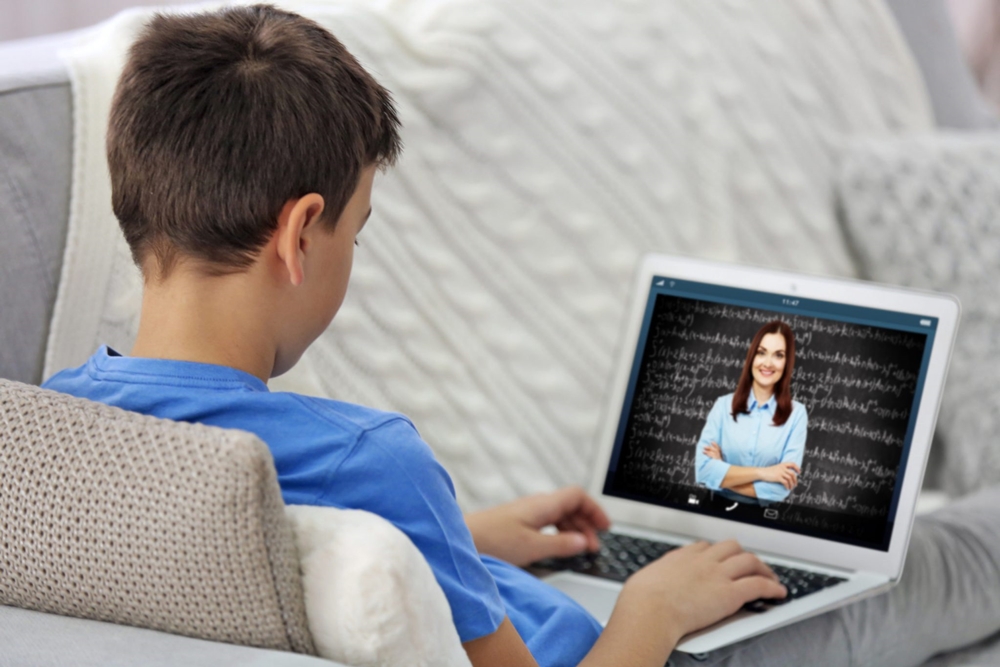The speed of changes during these unprecedented times we are all going through are profound and in many cases, so are the opportunities. In the field of education, it is obvious that the coronavirus pandemic is reshaping many of its aspects. This sudden change forced many teachers to shift digitally, to virtual environments, trying to find their way on how to teach, how to adapt their traditional curriculum, where to find digital material and engage learners in this new learning environment. And they succeeded in adapting and running their classes remotely, unfamiliar in many ways, identical in others. Obviously, the transition has not been that easy and requires time and resilience to experiment and adjust with new techniques in order to foster a dynamic remote learning experience for all our students.
By Georgia Georgogianni
Apart from teaching the curriculum, and prepare students for exams in many cases, something new and challenging appears to be gain ground: soft skills .Some students seem to be thriving in these new circumstances and we can learn a lot from that. Changing their habits so quickly together with their teachers and swimming in uncharted waters is a great feat. They face a new reality where they need to show management skills, schedule and keep up with everything during the day. They start becoming independent and try to thrive in an environment where learning and collaborating have more dimensions than they previously thought. Students do individual work, group work, confer with teachers when needed. They learn to prioritize their tasks and they have to learn emotional intelligence skills to deal with the change there are going through. A sudden change. A change they were not prepared for. After all, they are empowered to think out of the box, research and pursue their interests. By instructing students how to learn, unlearn and relearn a new dimension is added to their concept of education in a constantly changing world. Aren’t all these skills necessary for their future?
In such an enjoyable and non threatening-surrounding, they can practice some basic soft skills needed for a more rounded education. Many teachers are reporting that a handful of shy, hyperactive students are doing better with remote learning than they were doing in their physical classrooms. They are able to maximize their learning when at home. They feel safe to express themselves and go the extra mile. The flexibility to work at their own pace and not being constantly on the go, gives many students room for reflection. Taking ownership over their learning and understanding how they learn and what support they need, is a great achievement itself. Gaining confidence in technology increases access to learning via innovative and immersive educational opportunities. This adaptation to the new reality is a crucial meta-skill needed in their life when they will have to show that apart from academic skills they have some intangible, non-technical abilities under their belt that will help them pursue their personal and professional future endeavors.
As for the parents’ role in this new environment, they are welcome to be actively engaged, get out of their comfort zone, cooperate with their children and learn together what this new environment has to offer. They change together, they move on together and they explore together new paths. They cooperate and adapt to the new situation with baby steps. This pandemic has forced educators, parents and students, to think critically, be creative and agile. It has also revealed that we can do things differently and look for solutions that we didn’t want to see, although they were in front of us.
In times of public calamity where a good dose of fear exists, we are able to reformulate the way things were done and adjust them to the existing reality. As an educator, I feel that by enabling students to learn soft skills, we help them learn skills that will make them succeed in their future. Without doubt, a lot of teaching done nowadays is teacher-centered with the aim to cover the curriculum and pass a test or receive an award. There is definitely more than that and we, as educators, must ask ourselves what we can do better and how to rethink and reshape things. We should reflect on what we have learnt during this challenging time and listen to our students’ experiences. See how they have grown. We need to teach skills that will be applied out of the classrooms, in students’ everyday life and obviously traditional classes can go a step further and teach students in a variety of ways and with a variety of tools. It is my hope that this is an opportunity to prepare students for a future that needs critical thinkers and problem solvers to keep the world evolving. COVID-19 can be a paradigm shift for education. We must all go through it and grow with it.
BIO
Georgia Georgogianni holds a BA in English Language and Literature and an M.Ed in Tesol. She is also TEFL certified. Georgia has been teaching English for more than 15 years in various teaching contexts in Greece and the UK both in the private and public sector. Her main interests lie in assessment, teaching with technology and finding new, engaging ways for language learning. She is driven by creative passion and a desire to leave her mark and have a positive impact on the education industry.
